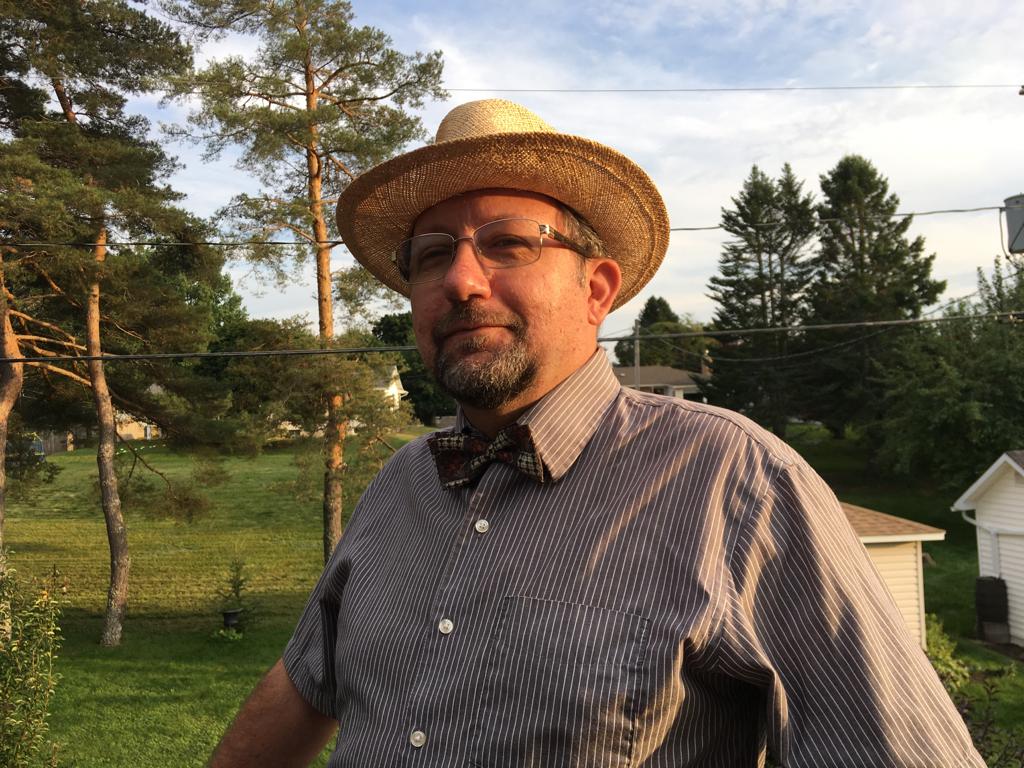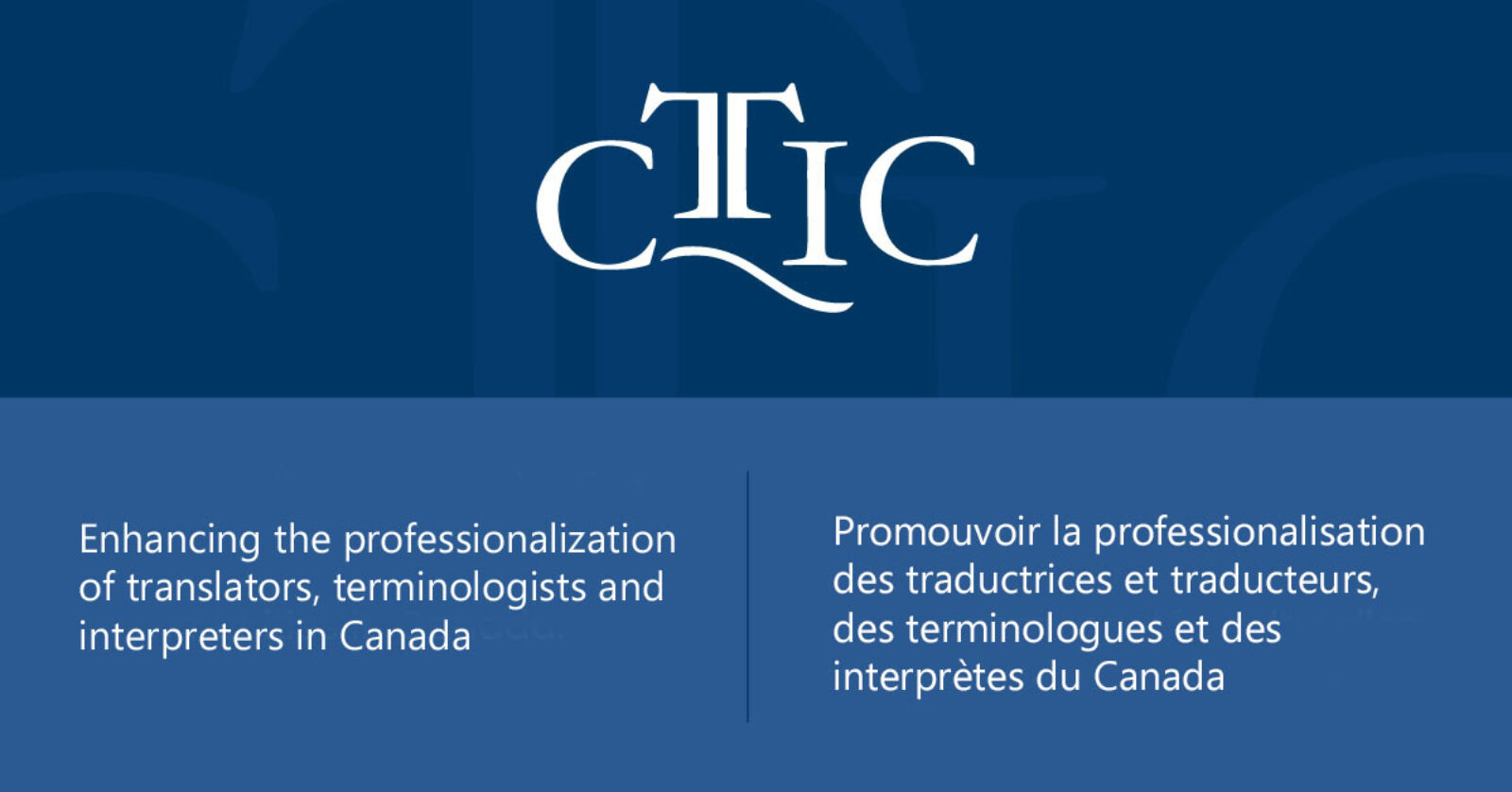Interviewed by Angela Fairbank, CTTIC board member-at-large, November 27, 2022.

Translator, Terminologist, Interpreter – which of these three professions do you identify with?
I am a certified translator in the English to Russian language combination. I also work with Ukrainian. I have occasionally done some interpreting work, but I can see quite clearly that translation and interpretation are two related yet distinct language professions.
Please provide a brief synopsis of your education – including language education – and background related to how you came to be a Translator/Interpreter/Terminologist, such as immersion in foreign countries and culture, university education, mentorship/menteeship, internship, etc.
I obtained my Bachelor’s degree in Linguistics in Russia. My curriculum included courses in translation and text interpretation, and after graduation I worked as an in-house translator for a Russian distributor of a few Western publishing companies, including Encyclopedia Britannica. Years later, already in Canada, I decided to take up advanced studies in the field of the Sociology of Religion, and obtained my M.A. and Ph.D. degrees in Religious Studies from the University of Calgary.
How long have you been working in your chosen profession?
I have close to 15 years of combined experience as a translator. There were times in my life when I dedicated my efforts to other pursuits, so these 15 years are not continuous.
Are you currently working in-house or as a freelancer? If you have had experience in both types of employment, which do you prefer?
I run a small translation agency in partnership with my daughter Arina, who is also a certified translator, and with the help of a few regular sub-contractors, whose services we use when needed. I worked as an in-house translator for some time, but have strong personal preference for freelance/independent work.
Where do you currently exercise your profession?
I live and work in the city of Dieppe, New Brunswick. Dieppe is a predominantly francophone community that is part of the so-called Greater Moncton metropolitan area together with the neighbouring communities of Moncton and Riverview.
Are you certified in your profession? If so, by which certification organization(s) and for how long have you been certified now? If you are certified, once you became certified, did you notice your income increase slightly, moderately or substantially?
I obtained my certification from CTINB in 2017 at my first attempt. I have also been certified in the Russian to Spanish/Spanish to Russian combinations by the national translators’ association of the South American country of Chile since 2011. I think that certification had a positive impact on my income. However, perhaps it was not the certification itself, but rather my increased efforts to find a niche in the market ever since I became certified that contributed to this.
What have been some of the highlights of your career so far?
I think certification was a pretty big step. I believe it helped me feel more confident and, even more importantly, it encouraged me to get involved in the life of our provincial association of translators and interpreters. Becoming president of our provincial association is another highlight. I would really like to make a difference during my mandate.
Have there been any particular challenges in your profession that you would like to share with our readers?
During the pandemic, I was contracted by New Brunswick provincial authorities to translate a significant volume of material into Russian, which was a challenging, but very interesting, experience. This work helped me become far more familiar with medical and hospital terminology and allowed me to see how important our profession really is in a tangible way.
What advice do you have for colleagues who are just starting – or thinking of starting – in the profession today?
A variety of possible work scenarios are available. For example, the employment market, rates etc. for translation between the official languages here in Canada may be quite different from translation work involving a foreign language. However, as a general recommendation, I would advise beginning translators to look for their niche as a first step, that is, a field or area of translation they find especially promising or enjoy the most (or both, ideally). This may be anything from genealogical translation to literary translation to medical translation. Step two would be to strive to be the best in that area. Don’t think about money as you start out. Think instead about how to excel in what you do. Once you reach that goal, money will find you.
As the new President of CTINB, please tell us about its current challenges as a smaller member society under the CTTIC umbrella. Are there any events and/or new benefits your board is considering offering your members this year?
We are a relatively small provincial association and our main challenges are to keep our numbers up, to strengthen the prestige of language professions and to increase their visibility in society. New Brunswick is the only officially bilingual province in Canada and this fact confers a special type of responsibility on our association. Perhaps another challenge for us is to attract translators and interpreters in language combinations other than the two official languages due to the rising levels of immigration into our province.
Is there anything you or CTINB would like CTTIC to instigate specifically during the 2022-2023 season?
CTTIC is considering implementing some changes to the certification exam in 2023. Although it may be necessary, we at CTINB hope and expect that CTTIC will listen to the concerns of all provincial bodies and does not make any hasty decisions.
Is there anything I missed that you would like to add?
I would like to thank the CTTIC Board of Directors for the amazing work they do in taking all the voices from all the provincial associations, big and small, into account. I could feel this spirit of cooperation and mutual respect at the past AGM in Halifax and it was truly encouraging.
